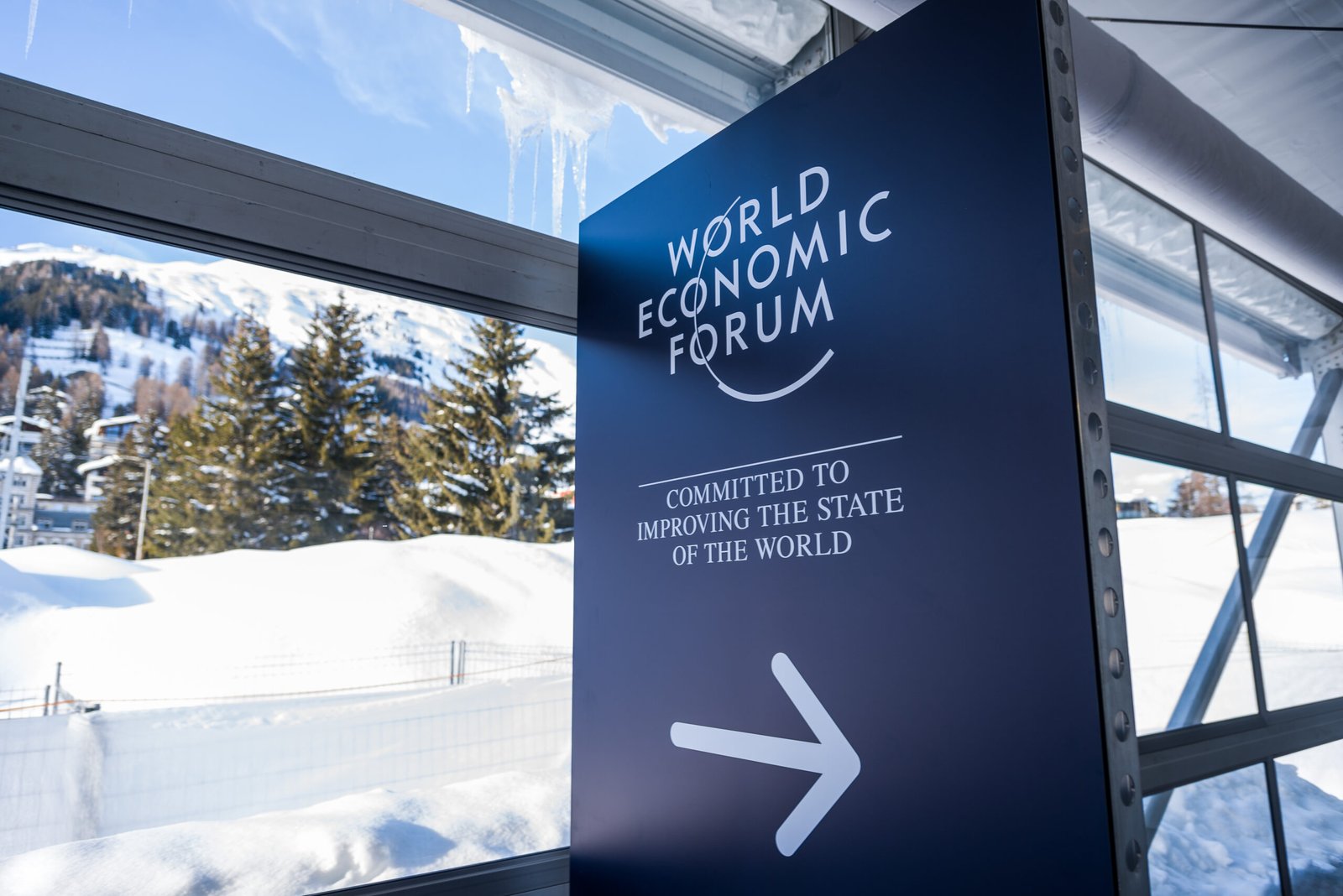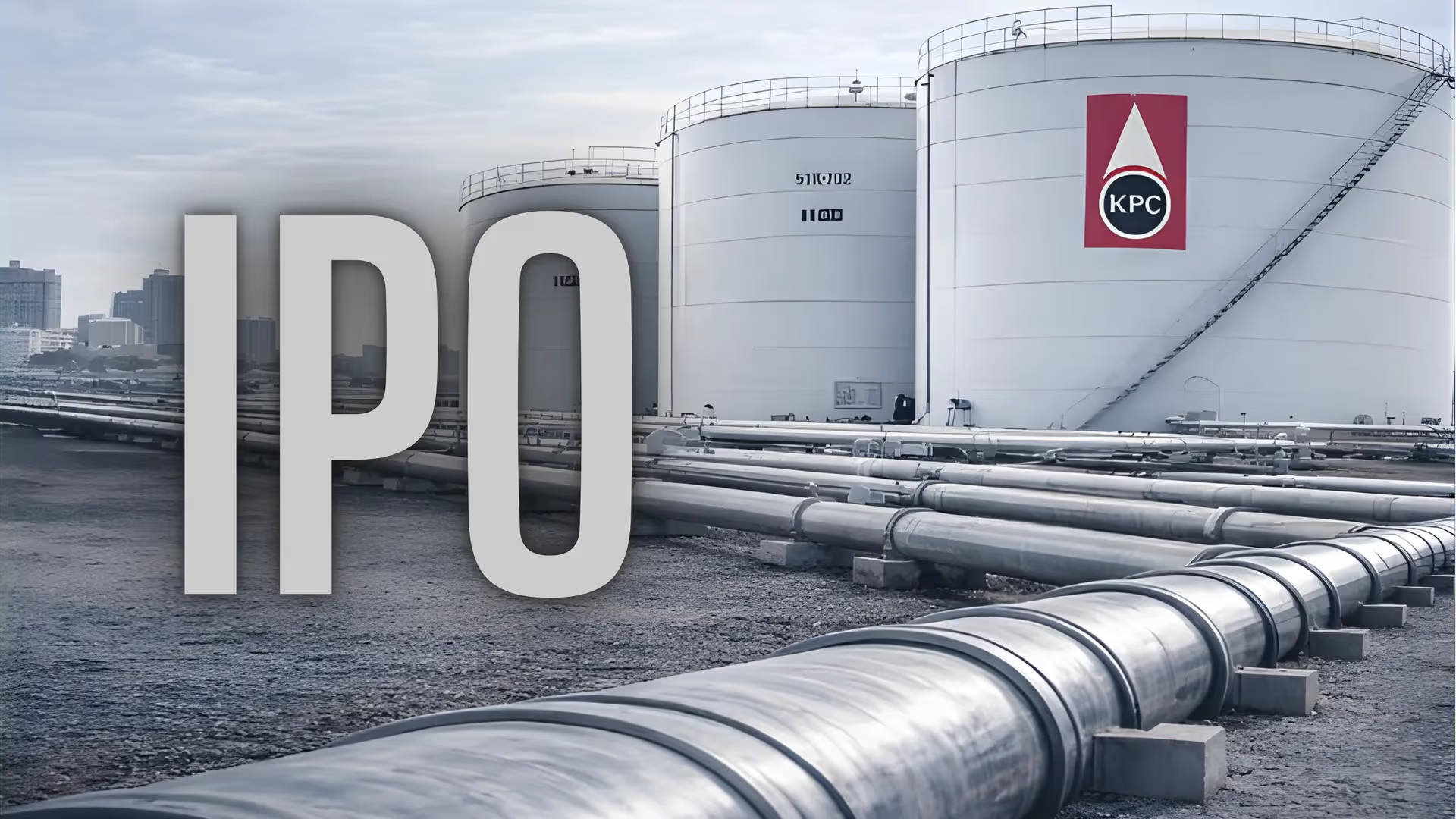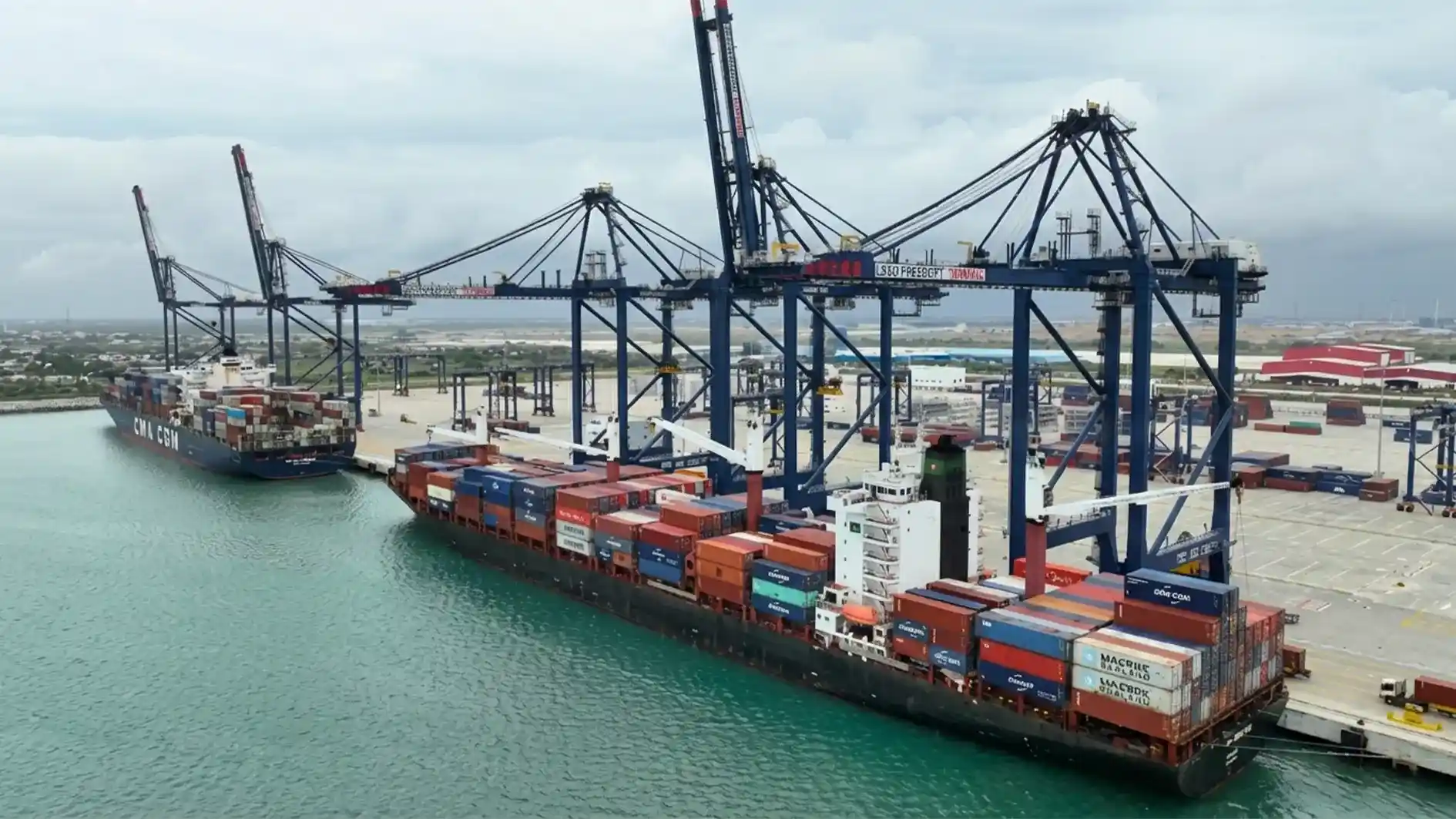The World Economic Forum (WEF) concluded its annual meeting in Davos, Switzerland, on Friday, leaving policymakers, business leaders, and global citizens with a clearer roadmap for navigating an era defined by technological innovation and societal challenges. Under the theme “Collaboration for the Intelligent Age,” the meeting revolved around five pivotal areas: reimagining growth, industries in the intelligent age, investing in people, safeguarding the planet, and rebuilding trust.
These themes underpin the evolving priorities of governments and corporations as they grapple with challenges and opportunities presented by technological advancements, demographic shifts, and global risks. Below are the key concepts and discussions that dominated the meeting, shedding light on the future trajectory of the global economy.
1. AI Agents: Transforming Industries and Daily Life
Autonomous AI agents, a core focus at Davos this year, have taken center stage in industries such as healthcare, finance, education, and logistics. These intelligent systems are capable of sensing, learning, and acting within their environments, unlocking unprecedented levels of efficiency.
The WEF’s recently published white paper, “Navigating the AI Frontier: A Primer on the Evolution and Impact of AI Agents”, highlighted the transformative potential of these systems. For instance, in healthcare, AI agents are being used to assist doctors in diagnostics, perform administrative tasks, and even predict outbreaks of diseases using vast datasets. In finance, they’re optimizing investment strategies and detecting fraudulent activities in real time.
The discussion at Davos emphasized that while AI agents promise immense benefits, their deployment must be balanced with ethical considerations. Questions about job displacement, data privacy, and algorithmic bias were raised repeatedly during the forum. Governments were urged to introduce clear regulatory frameworks to ensure responsible development and application of AI technologies.
2. Digital Trust: The Foundation of a Connected World
As the digital economy expands, the concept of digital trust has become critical. This term encapsulates the confidence that individuals and businesses place in digital technologies and the organizations that provide them.
At the forum, discussions on digital trust touched on cybersecurity, data privacy, and transparency. Industry leaders emphasized that without robust mechanisms to ensure trust, adoption of emerging technologies such as AI, blockchain, and quantum computing could falter.
One of the standout sessions on digital trust focused on the role of governments and corporations in safeguarding users’ data. Cybersecurity threats remain a major concern, with ransomware attacks alone estimated to cost the global economy over $20 billion annually. The forum called for stronger international cooperation to address cyber risks, alongside investments in secure digital infrastructure.
A key takeaway was the importance of empowering individuals with greater control over their digital footprints. Initiatives such as decentralized identity systems, which allow users to manage their personal data, were highlighted as critical for building trust in the digital age.
3. The Intelligent Age: A New Paradigm of Growth
The rapid pace of innovation in areas like quantum computing, AI, and blockchain has ushered in what WEF experts are calling “the Intelligent Age.” This era demands not only technological intelligence but also advancements in environmental, social, and geopolitical understanding.
One session titled “Technology Meets Humanity: Balancing Progress with Ethics” delved into the double-edged sword of technological growth. Quantum computing, for example, holds the potential to solve complex problems in seconds, but it could also render current encryption methods obsolete, raising security concerns.
Similarly, blockchain technologies are revolutionizing supply chains and financial systems, but their energy-intensive nature has sparked debates about sustainability. Leaders at Davos urged tech companies to prioritize green innovation, such as the development of energy-efficient data centers and carbon-neutral technologies.
This intelligent age is also about harnessing technology to tackle global challenges. AI-driven climate modeling, for instance, is helping predict and mitigate the impact of climate change, while digital platforms are being used to improve disaster response and humanitarian aid delivery.
4. Super-Ageing Societies: Navigating Demographic Shifts
One of the pressing issues highlighted at the forum was the rise of super-ageing societies. According to the World Health Organization (WHO), a country is considered super-aged when more than 20% of its population is over 65 years old.
Japan and Italy have already crossed this threshold, and countries like South Korea and Germany are expected to follow suit by 2030. This demographic trend presents significant economic and labor market challenges. For instance, aging populations lead to shrinking workforces, higher healthcare costs, and increased pressure on pension systems.
Davos discussions centered on innovative solutions to address these challenges. Key strategies included:
- Workforce Adaptation: Encouraging older adults to remain in the workforce through flexible job opportunities and reskilling programs.
- Healthcare Innovation: Leveraging telemedicine and AI to reduce healthcare costs and improve accessibility for aging populations.
- Pension Reforms: Exploring new models of social security that account for longer lifespans and changing economic conditions.
The forum also highlighted the potential of technology to improve the quality of life for older adults. Smart home technologies, wearable health devices, and AI-driven eldercare robots are becoming increasingly popular in addressing the needs of aging populations.
5. Safeguarding the Planet: Accelerating Climate Action
Climate change remained a central theme at Davos, with leaders calling for urgent action to safeguard the planet. The forum emphasized that collaboration between governments, businesses, and civil society is essential to achieve net-zero emissions by mid-century.
Several high-profile initiatives were announced, including commitments by major corporations to decarbonize their supply chains and invest in renewable energy. The role of technology in combating climate change was a recurring theme, with advancements in areas like carbon capture, renewable energy storage, and climate modeling receiving particular attention.
One session, “Financing the Green Transition: The Role of Private Capital,” explored how private investors can accelerate the shift to sustainable economies. Green bonds and sustainability-linked loans were highlighted as critical tools for mobilizing capital toward climate-friendly projects.
6. Rebuilding Trust: Bridging Divides in a Polarized World
The theme of rebuilding trust resonated strongly throughout the forum, reflecting growing concerns about societal polarization, geopolitical tensions, and declining confidence in institutions.
WEF participants stressed the need for transparent governance, inclusive economic policies, and open dialogue to address divisions within and between societies. Topics such as misinformation, social inequality, and political instability were discussed extensively, with calls for action to restore trust in democratic institutions and global cooperation.
The forum also explored the role of education in fostering trust. Leaders emphasized the importance of teaching digital literacy, critical thinking, and empathy to prepare future generations for the challenges of the Intelligent Age.
Conclusion: A Blueprint for the Future
The 2025 World Economic Forum provided a platform for leaders to address some of the most pressing issues of our time, offering a blueprint for navigating the challenges and opportunities of the Intelligent Age.
From harnessing the potential of AI agents to addressing the needs of super-ageing societies, the discussions at Davos underscored the importance of collaboration, innovation, and inclusivity. As the world continues to evolve, the insights and initiatives emerging from the forum will play a pivotal role in shaping a sustainable and equitable future.
By focusing on trust, technology, and sustainability, Davos 2025 reminded us that progress in the Intelligent Age must be guided by shared values and collective action. As governments and businesses work together to implement these ideas, the road ahead looks promising, albeit with challenges that will require continued vigilance and cooperation.
Ready to take your career to the next level? Join our dynamic courses: ACCA, HESI A2, ATI TEAS 7 , HESI EXIT , NCLEX – RN and NCLEX – PN, Financial Literacy!🌟 Dive into a world of opportunities and empower yourself for success. Explore more at Serrari Ed and start your exciting journey today! ✨
Photo source: Google
By: Montel Kamau
Serrari Financial Analyst
27th January, 2025
Article, Financial and News Disclaimer
The Value of a Financial Advisor
While this article offers valuable insights, it is essential to recognize that personal finance can be highly complex and unique to each individual. A financial advisor provides professional expertise and personalized guidance to help you make well-informed decisions tailored to your specific circumstances and goals.
Beyond offering knowledge, a financial advisor serves as a trusted partner to help you stay disciplined, avoid common pitfalls, and remain focused on your long-term objectives. Their perspective and experience can complement your own efforts, enhancing your financial well-being and ensuring a more confident approach to managing your finances.
Disclaimer: This article is for informational purposes only and does not constitute financial advice. Readers are encouraged to consult a licensed financial advisor to obtain guidance specific to their financial situation.
Article and News Disclaimer
The information provided on www.serrarigroup.com is for general informational purposes only. While we strive to keep the information up to date and accurate, we make no representations or warranties of any kind, express or implied, about the completeness, accuracy, reliability, suitability, or availability with respect to the website or the information, products, services, or related graphics contained on the website for any purpose. Any reliance you place on such information is therefore strictly at your own risk.
www.serrarigroup.com is not responsible for any errors or omissions, or for the results obtained from the use of this information. All information on the website is provided on an as-is basis, with no guarantee of completeness, accuracy, timeliness, or of the results obtained from the use of this information, and without warranty of any kind, express or implied, including but not limited to warranties of performance, merchantability, and fitness for a particular purpose.
In no event will www.serrarigroup.com be liable to you or anyone else for any decision made or action taken in reliance on the information provided on the website or for any consequential, special, or similar damages, even if advised of the possibility of such damages.
The articles, news, and information presented on www.serrarigroup.com reflect the opinions of the respective authors and contributors and do not necessarily represent the views of the website or its management. Any views or opinions expressed are solely those of the individual authors and do not represent the website's views or opinions as a whole.
The content on www.serrarigroup.com may include links to external websites, which are provided for convenience and informational purposes only. We have no control over the nature, content, and availability of those sites. The inclusion of any links does not necessarily imply a recommendation or endorsement of the views expressed within them.
Every effort is made to keep the website up and running smoothly. However, www.serrarigroup.com takes no responsibility for, and will not be liable for, the website being temporarily unavailable due to technical issues beyond our control.
Please note that laws, regulations, and information can change rapidly, and we advise you to conduct further research and seek professional advice when necessary.
By using www.serrarigroup.com, you agree to this disclaimer and its terms. If you do not agree with this disclaimer, please do not use the website.
www.serrarigroup.com, reserves the right to update, modify, or remove any part of this disclaimer without prior notice. It is your responsibility to review this disclaimer periodically for changes.
Serrari Group 2025
















